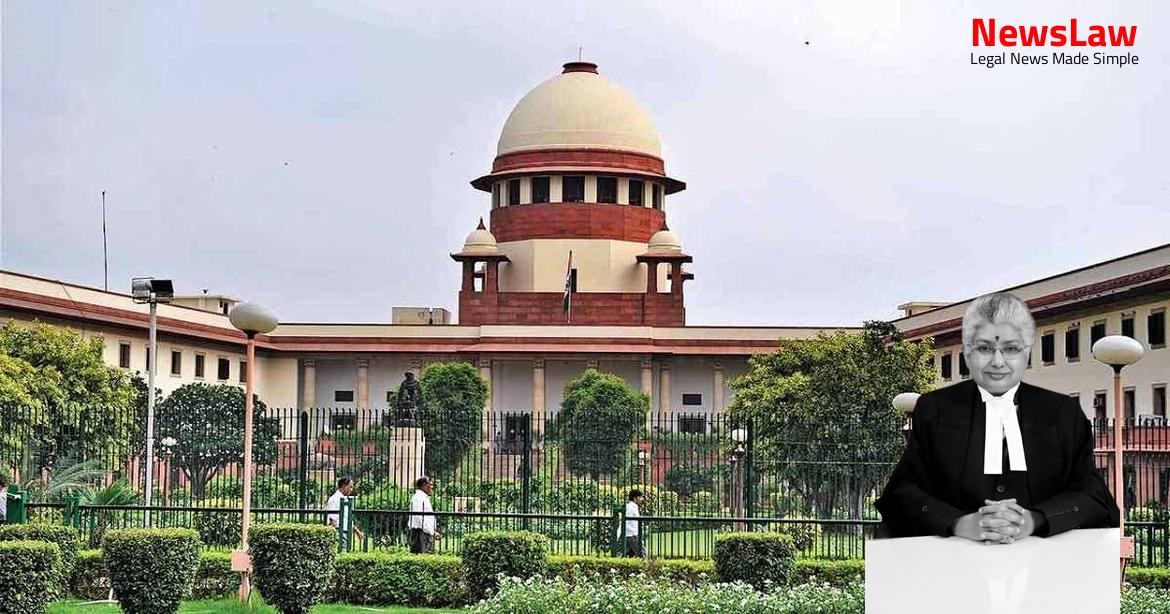No 2739 (W) of 2016 and connected matters and directed the Director of Local Bodies, Burdwan Municipality and the concerned authority in Ranaghat and Habra Municipalities to consider the application made by the Respondents-Writ Petitioners seeking appointment on compassionate grounds. The case of the Respondents-Writ Petitioners concerning Burdwan Municipality is that based on the applications received from the heirs of the deceased employees working under different categories, the Burdwan Municipality directed an enquiry by a three-member committee comprising of the Chairman of Burdwan Municipality (Respondent No 6 herein); the Executive Officer of the Burdwan Municipality (Respondent No 7 herein) and the Deputy Director of Local Bodies, Burdwan Division, to determine whether the respondents were entitled to the appointment on compassionate grounds.
That on the basis of the report submitted by the enquiry committee and after following the criteria set in the West Bengal Municipal, Employees’ (Recruitment) Rules, 2005, the Board of Councillors of Burdwan Municipality in its meeting held on 30 May 2013, approved a list of 62 eligible candidates for the purpose of recruitment in Group ‘C’ and ‘D’ posts in the said Municipality.
That since the Director of Local Bodies or the Government of West Bengal did not take steps pursuant to the receipt of the list of candidates, Debabrata Tiwari (Respondent No 1) filed a Writ Petition bearing No 3243 (W) of 2015 before the High Court of Calcutta seeking appointment on compassionate grounds under the relevant exempted category. No 3243 (W) of 2015, the Director of Local Bodies, Government of West Bengal, on 16 October, 2015 passed an Order wherein it was stated that the Director of Local Bodies had no authority to consider the appointments 5 under compassionate grounds in Urban Local Bodies, unless the policy in the matter was laid down by the State Government. No 2733 (W) of 2016 was heard and disposed of together by the learned Single Judge of the High Court of Calcutta by way of a Common Judgment and Order dated 5 July, 2018. The said appeals were heard and allowed by a common impugned judgement dated 30 September, 2019, passed in MAT 859 of 2018 with CAN 6137 of 2018 in the case of Debabrata Tiwari vs The State of West Bengal. The Director of Local Bodies kept the matter pending without according any approval of the recommendations, as a result, a Writ Petition was filed which was disposed of with a specific direction to the Director of Local Bodies to consider the applications within a time frame. Thus, the respondents were not entitled to claim the benefit of compassionate appointment in terms of the schemes formulated vide Circular No 97-Emp.; 142-Emp.; 30-Emp.; and 8 251-Emp., which were specifically applicable to State Government employees. was applicable only in respect of State Government employees and directed the municipalities to formulate their own schemes for compassionate appointment, no such scheme had been 9 formulated by the concerned municipalities. 301-Emp., 302-Emp.
301-Emp., 302-Emp. 301-Emp., 302-Emp.
Submissions: Learned Senior Counsel for the Appellant-State of West Bengal at the outset submitted that the findings of the Division Bench of the High Court of Calcutta were based on an incorrect appreciation of law and facts and therefore the same are liable to be set aside. That a direction to act on the same now, i.e., 17-18 years after the applications seeking compassionate appointment were made, would not further the object of a scheme of compassionate appointment. This would mean that as a matter of policy 12 of the State Government, it was declared that it is not viable to give compassionate appointment to heirs of employees of establishments of public undertakings, statutory bodies, government companies and local authorities. It was urged that compassionate appointment could not be claimed as a matter of right and a claim for the same must be entertained having regard to the compelling financial circumstances (if any) of the deceased’s dependent(s). declared the following category of persons as ‘exempted category’ extending, inter-alia, the benefit of compassionate appointment to the said ‘exempted category: a) Dependents of employees dying in harness. Further, by Notification No 302-Emp., the State Government reserved 30% of vacancies to be filled by the ‘exempted category’.
dated 6 June, 2005 was issued by the Petitioner State in the exercise of the powers conferred under Section 3(c) of the 1999 Act, inter-alia, laying down the procedure to be followed in dealing with the issue of appointment on 14 compassionate grounds to the ‘exempted category’. Whether the Division Bench of the High Court of Calcutta erred in allowing the appeals filed by the Respondents-Writ Petitioners and 15 directing that their claims for compassionate appointment be considered by the Appellant? The State’s obligation in this regard, confined to its employees who die in harness, has given rise to schemes and rules 16 providing for compassionate appointment of an eligible member of his family as an instance of providing immediate succour to such a family. In Sushma Gosain vs Union of India, (1989) 4 SCC 468, this Court observed that in all claims for appointment on compassionate grounds, there should not be any delay in appointment.
That the object being to enable the family to get over the financial crisis which it faces at the time of the death of the sole breadwinner, compassionate employment cannot be claimed and offered after lapse of considerable amount of time and after the crisis is overcome.
This Court in State of Haryana vs Ankur Gupta, AIR 2003 SC 3797 held that in order for a claim for compassionate appointment to be considered reasonable and permissible, it must be shown that a sudden crisis occurred in the family of the deceased as a result of death of an employee who had served the State and died while in service. There is a consistent line of authority of this Court on the principle that appointment on compassionate grounds is given only for meeting the immediate unexpected hardship which is faced by the family by reason of the death of the bread earner vide Jagdish Prasad vs State of Bihar, (1996) 1 SCC 301. In State of Jammu and Kashmir vs Sajad Ahmed Mir, AIR 2006 SC 2743, the facts before this Court were that the government employee (father of the applicant therein) died in March, 1987.
(as His Lordship then was) observed that compassionate appointment is an exception to the general rule that appointment to any public post in the service of the State has to be made on the basis of principles accord with Articles 14 and 16 of the Constitution. Since such a provision enables appointment being made without following the said procedure, it is in the nature of an exception to the general provisions and must be resorted to only in order to achieve the stated objectives, i.e., to enable the family of the deceased to get over the sudden financial crisis. In determining as to whether the family is in financial crisis, all relevant aspects must be borne in mind including the income of 22 the family, its liabilities, the terminal benefits if any, received by the family, the age, dependency and marital status of its members, together with the income from any other source. Having regard to such an object, it would be of no avail to grant compassionate appointment to the dependants of the deceased employee, after the crisis which arose on account of death of a bread-winner, has been overcome. Where a long lapse of time has occurred since the date of death of the deceased employee, the sense of immediacy for seeking compassionate appointment would cease to exist and thus lose its significance and this would be a relevant circumstance which must weigh with the authorities in determining as 23 to whether a case for the grant of compassionate appointment has been made out for consideration.
Also Read: https://newslaw.in/supreme-court/w-p-crl-no-000491-2022/
Since compassionate appointment is not a vested right and the same is relative to the financial condition and hardship faced by the dependents of the deceased government employee as a consequence of his death, a claim for compassionate appointment may not be entertained after lapse of a considerable period of time since the death of the government employee. Laches or undue delay, the blame-worthy conduct of a person in approaching a Court of Equity in England for obtaining discretionary relief which disentitled him for grant of such relief was explained succinctly by Sir Barnes Peacock, in Lindsay Petroleum Co. Two circumstances, always important in such cases, are, 25 the length of the delay and the nature of the injustice acts done during the interval, which might affect either party and cause a balance of Justice or injustice in taking the one course or the other, so far as it relates to the remedy.” Whether the above doctrine of laches which disentitled grant of relief to a party by Equity Court of England, could disentitle the grant of relief to a person by the High Court in the exercise of its power under Article 226 of our Constitution, came up for consideration before a Constitution Bench of this Court in Moon Mills Ltd. The High Court does not ordinarily permit a belated resort to the extraordinary remedy because it is likely to cause confusion and public inconvenience and bring, in its train new injustices, and if writ jurisdiction is exercised after unreasonable delay, it may have the effect of inflicting not only hardship and inconvenience but also injustice on third parties. In this regard, it may be apposite to refer to the decision of this Court in State of Uttaranchal vs Shiv Charan Singh Bhandari, (2013) 12 SCC 179, wherein the following observations were made: “ 19. Notwithstanding the tardy approach of the authorities of the Appellant-State in dealing with their applications, the Respondent-Writ Petitioners delayed approaching the High Court seeking a writ in the nature of a mandamus against the authorities of the State.
Before parting with the present order, we are constrained to observe that considering the object and 28 purpose of appointment on compassionate grounds, i.e., a family of a deceased employee may be placed in a position of financial hardship upon the untimely death of the employee while in service and the basis or policy is immediacy in rendering of financial assistance to the family of the deceased consequent upon his untimely death, the authorities must consider and decide such applications for appointment on compassionate grounds as per the policy prevalent, at the earliest, but not beyond a period of six months from the date of submission of such completed applications. We are constrained to direct as above as we have found that in several cases, applications for appointment on compassionate grounds are not attended in time and are kept pending for years together. Then and then only the object and purpose of appointment on compassionate grounds can be achieved.” (emphasis by us)
In the said case, the claim of the appellant-applicant therein for compassionate appointment was directed by this Court to be considered by the competent authority. Further, in the said case, the appellant-applicant was prejudiced not only because of the prolonged delay in considering his application but also by the fact that in the interim, the policy of the State governing compassionate appointment had changed to his detriment. The Respondents-Writ Petitioners were not prudent enough to approach the Courts sooner, claiming that no concrete step had been taken by the Appellant-State in furtherance of the application by seeking a Writ in the nature of Mandamus. Hence, we think that this is therefore not fit cases to direct that the claim of the Respondents-Writ Petitioners for appointments on compassionate grounds, be considered or entertained.
However, we shall also examine whether these appeals must succeed on a second count, i.e., whether there exists any scheme in the State of West Bengal, governing compassionate appointment vis–vis municipal employees dying in harness. 301-EMP/lM-10/2000-21st August, 2002 : “In exercise of the powers conferred by sub-section (a) of section 3 of the West Bengal Regulation of Recruitment in State Government Establishments and Establishments of Public Undertakings, Statutory Bodies. A near relation of the deceased employee may be considered for employment on compassionate ground only when the son/daughter/wife of the deceased employee cannot be considered for employment owing to minor age or other disabilities. 302-EMP/1M-10/2000 – 21st August, 2002: “In exercise of the powers conferred by sub-section (b) of section 3 of the West Bengal Regulation of Recruitment in State Government Establishments and Establishments of Public Undertakings, Statutory Bodies, Government Companies and Local Authorities Act, 1999 (West Bengal Act of 1999), the Governor is pleased to order that of the local vacancies arising in a year under any appointing authority, other than the vacancies which are required to be filled up either on the recommendations of- (a) the Public Service Commission, West Bengal, or (b) the West Bengal College Service Commission, or (c) the West Bengal School Service Commission, or (d) the Municipal Service Commission, or (e) the Co-operative Service Commission Or by promotion, or by absorption of persons declared surplus by the State Government or by absorption of such categories of casual workers and other workers 34 as the State Government may by notification specify from time to time, 30% shall be treated as reserved to be filled up by persons falling within the exempted categories notified under sub-section (a) of section 3 of the aforesaid Act.” The benefit will be admissible if the family, left behind by the deceased employee, is in immediate need of assistance and such employment on compassionate ground is absolutely essential to support the family of the deceased. The wife/son/daughter/near relation of an employee who died-in-harness, may apply to the appointing authority through the Head of the Office of the employee in a prescribed form as per Part I & II of Annexure “A” along with a copy of death certificate praying for employment to support the family of the deceased employee. If a suitable vacancy is not available under the appointing authority concerned the administrative department may identify suitable vacancy under some other appointing authority under its administrative control for providing employment. One of the dependants of an employee who dies in harness or who retires prematurely on being declared permanently incapacitated may be offered appointment on compassionate ground subject to the fulfilment of the following conditions: (i)
For the purpose of appointment of compassionate ground in terms of this notification, a dependant shall mean, a son or an unmarried daughter who was (sic) solely dependent on the earnings of the deceased or the retired employee. 6) Jails Department.”
37 EMP-142 – 1st November, 2007 : “Consequent upon issue of this Department’s Notification No 97-Emp, dated 06.06.2005, a question arose as to if the provisions of the said notification would be applicable to the State Government employees only or to the employees attached to such other establishments, as are mentioned in the West Bengal Regulation of Recruitment in State Government Establishments and Establishments of Public Undertakings, Government Companies and Local Authorities Act, 1999, as well.
Case Title: THE STATE OF WEST BENGAL Vs. DEBABRATA TIWARI (2023 INSC 202)
Case Number: C.A. No.-008842-008855 / 2022



